| Previous Page | Print Page | Home |
I have bought a SoftRock receiver kit from http://stores.ebay.de/Waters-and-Stanton in the UK. A few days later the nicely packed kit lay on my desk waiting to be assembled. Assembly was no problem except for a blind via hole which took me a little while to locate. Then the board looked somewhat like this:
Since I am curious and I have a nice homebrew vector network analyzer I decided to analyze the frontend filter:

A numerical analysis with APLAC showed that the filter is nicely designed, maybe a bit narrow to cover the 40m band:
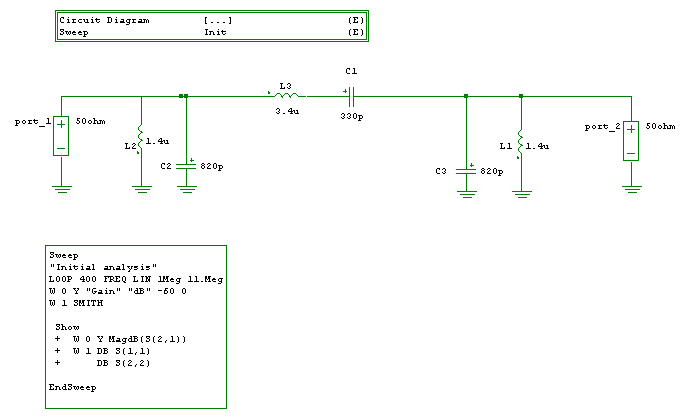

Then I disconnected the secondary windings of the transformer and connected the filter to the networkanalyzer:
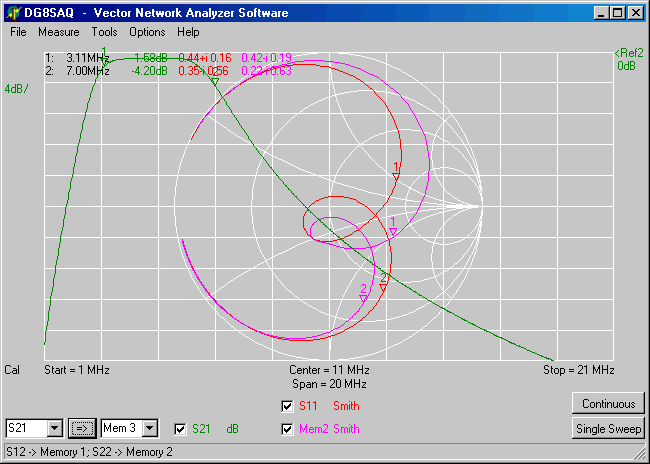
Looks like simulated, also a bit narrow on the upper side.
Of course, the RX doesn't terminate the filter with 50 Ohms. To see this effect, I measured the transfer function of the filter at T1 terminal 1 with a high impedance probe:
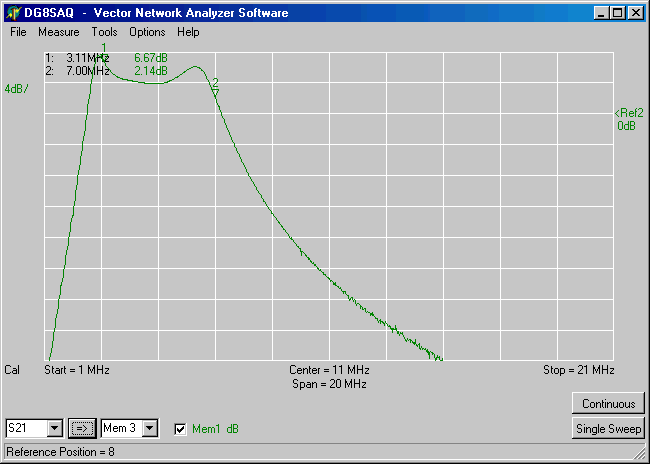
Obviously, due to output mismatch the filter transfer function gets quite a bit distorted. A negative loss here doesn't mean power gain. This only shows the effect of voltage transformation at the high impedance probe. Thru calibration was performed at a 50 Ohms termination.
After so much analysis I wanted to HEAR something. A first test on 80m was quite impressive.
For a second test I replaced the original crystal by a 16 MHz type to be able to receive a DRM transmission on 3.995MHz, wich worked extremely well with never seen before 30dB signal to noise ratio. I used the freeware DREAM which supports IQ signals.
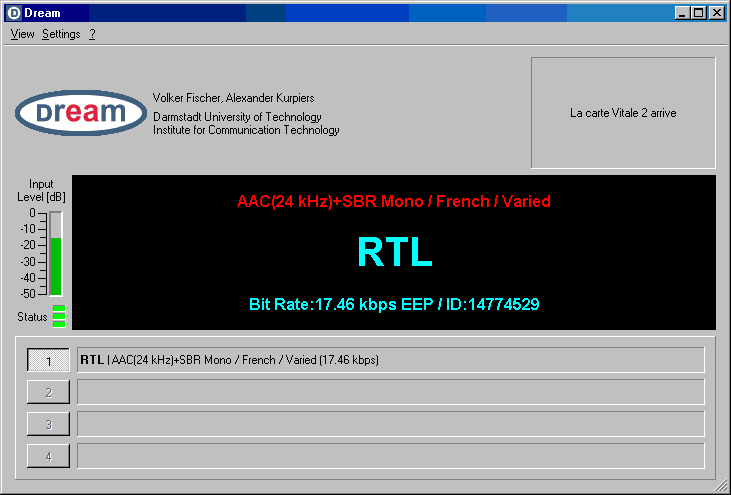
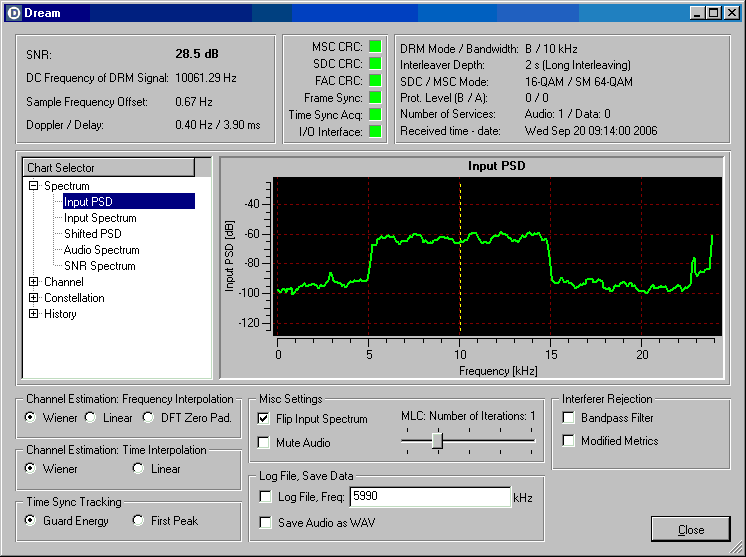
The same input signal on the other sideband looks like this:
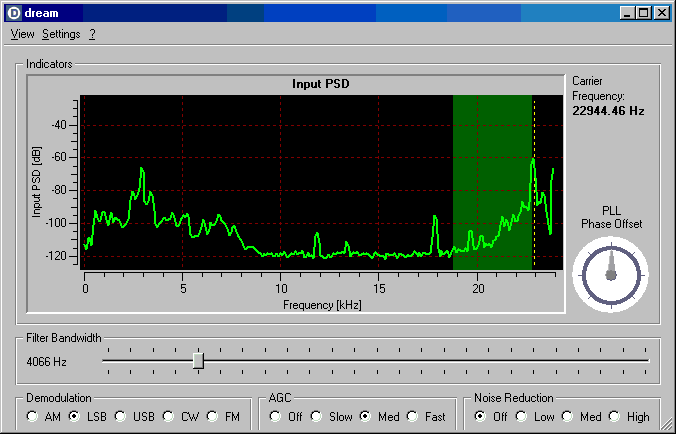
The DRM signal is perfectly suppressed by the software image reject process.
Conclusion:
A wonderful piece of technology with wide potential for experiments. Highly recommended!
| Previous Page | Print Page | Home |